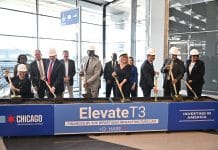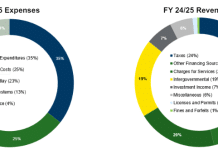An apartment construction boom is underway in Chicago’s West Loop.
At present, 9,065 new apartments are planned for the district, more than all other downtown neighbourhoods combined, appraisal and consulting firm Integra Realty Resources says.
“It’s a pretty staggering amount,” Matt Letourneau, president of Neighbors of West Loop, a residents group, told Crain’s Chicago Business, which first reported on this story. “We often ask questions about whether there are enough tenants” to fill all those apartments, he said.
Among new developments, Chicago-based Sterling Bay is breaking ground on a 30-story building at 160 N. Morgan St., one of at least 19 multifamily developments planned or under construction in the former meatpacking district, the business publication reported.
$40 million building permit issued for 18-story West Loop residential tower
“With its strong pipeline of incoming corporate headquarters, innovative retailers and promising tech ventures, the area now needs more multifamily options that can accommodate a young, modern workforce,” Sterling Bay CEO Andy Gloor says in a statement.
Sterling Bay also plans to build three more buildings totaling 1,371 apartments, including one at 1245 W. Fulton St. and two at 1300 W. Carroll St.
“People are going to be more vocal and not want their views blocked,” says Integra senior managing director Ron DeVries. “They’ll fight the density and fight the traffic and all that other stuff.”
Meanwhile, Related Midwest is building a 43-story, 300-unit apartment tower, a venture led by Chicago developer Tom Roszak is building a 27-story, 375-unit project at Randolph and Elizabeth streets and Shapack Partners plans two Fulton Market projects totaling 591 apartments, while Fulton Street Cos. plans two buildings with 833 units, Crain’s reports.
Of course, “not all developers will secure city approvals or construction financing for projects still in the planning stage. Rising interest rates and construction costs could make some projects unfeasible, or a recession could scare off construction lenders,” says Crain’s.






